World
Mid-level Chinese official to visit North Korea in tepid restoration of exchanges between allies

BEIJING (AP) — With North Korea firing missiles and facing a potential food crisis, China’s ruling Communist Party is sending a mid-level official to visit in hopes of restoring exchanges between the allies.
Li Hongzhong will join official North Korean commemorations of the signing of an armistice that ended fighting in the Korean War 70 years ago. North Korea, which launched the ultimately futile attempt to conquer its southern rival, considers the agreement a recognition of victory.
The conflict brought in forces from the newly created People’s Republic of China, aided by the Russian air force, while South Korea, the U.S. and troops from various countries under the direction of the United Nations battled to repulse the invasion. The border between the Koreas remains among the most tense in the world.
South Korea’s military says North Korea has fired two short-range ballistic missile into its eastern sea, adding to a recent streak in weapons testing.
South Korea’s military says North Korea has fired several cruise missiles toward its western sea. Saturday’s firing was the North’s second launch event this week, apparently in protest of the docking of a nuclear-armed U.S. submarine in South Korea.
With a U.S. soldier crossing the border into North Korea at the border town of Panmunjom and in custody this week, talk turns to the nation itself — a country that is known for its suspicion of outsiders but also rejects frequent descriptions of it as reclusive.
President Joe Biden has chosen Adm. Lisa Franchetti to lead the Navy. If confirmed, she will be the first woman to be a Pentagon service chief and the first female member of the Joint Chiefs of Staff.
Li is a member of the party’s high-level Politburo and a deputy chairperson of the ceremonial parliament, giving him national office, but not the level of status that would convey a full-bore expression of Chinese backing for North Korea at an ambiguous time in relations.
Some experts say North Korea might ramp up its weapons tests around the anniversary of the armistice on Thursday, July 27.
China was invited to send a “high-level delegation” to attend commemorative activities in North Korea, Chinese Foreign Ministry spokesperson Mao Ning said at a daily briefing Tuesday.
“We believe the visit will be conducive to promoting the sound and stable development of (bilateral) relations, contributing to regional peace and stability, and creating conditions for a political settlement of the (Korean) peninsula issue,” Mao said.
China has joined United Nations sanctions against North Korea over its missile and nuclear programs but remains its most important economic and political ally. Little is known about discreet contacts between the two, but Beijing has long been committed to preventing the collapse of North Korea’s three-generation-old Kim regime.
Dangerous and uncertain factors resulting from a collapse could include a wave of refugees crossing into China, a scramble for control of North Korea’s nuclear weapons and the sudden presence of South Korean and American troops along China’s border.
North Korea test-fired its first intercontinental ballistic missile in three months on Wednesday, days after it threatened “shocking” consequences to protest what it called provocative United States reconnaissance activity near its territory.
North Korean leader Kim Jong Un has visited China in past years, while Chinese leader Xi Jinping traveled to the North in 2019 in what was seen as partly an effort to use their ties to leverage concessions from the U.S. and its allies on their security arrangements in the region.
Such visits came to a halt as an increasingly isolated and impoverished North Korea closed its borders to prevent the spread of COVID-19.

World
Can toppled Syrian president Bashar al-Assad be brought to justice?
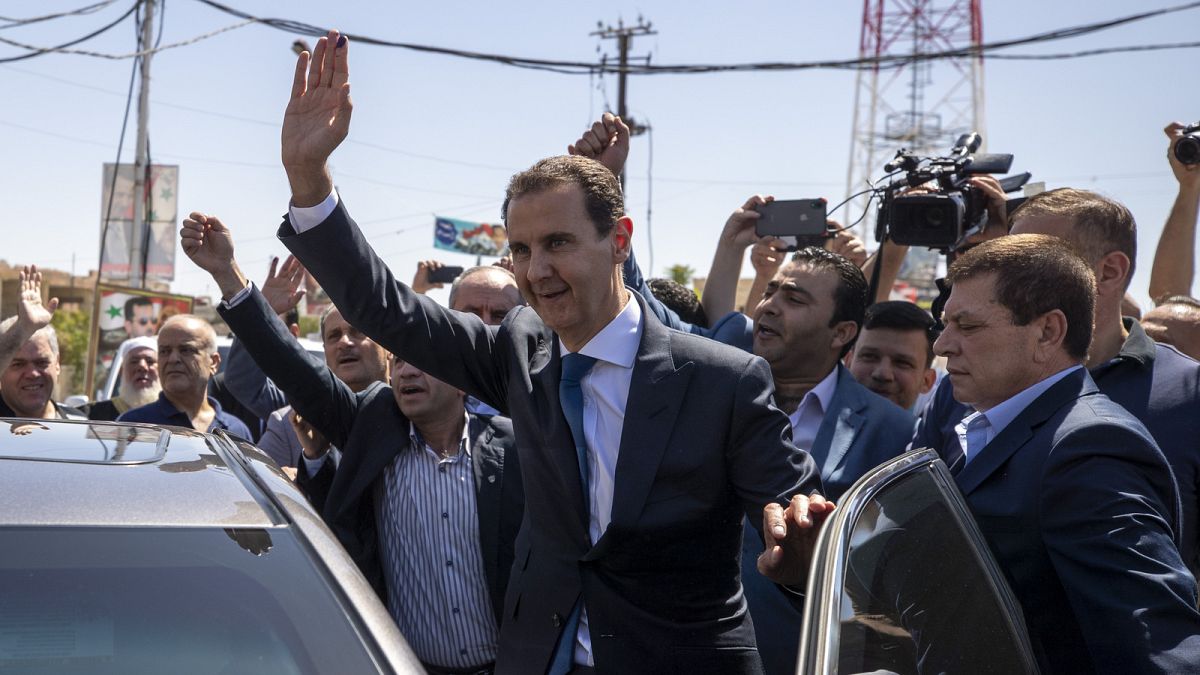
Despite the legal and political barriers to prosecution, human rights experts are optimistic that al-Assad and regime officials could one day be held accountable for their crimes in a court of law.
In Syria, celebrations of the fall of Bashar al-Assad have been mingled with a sense of horror, as gruesome evidence of the atrocities committed by his regime emerge.
Mass graveyards and the infamous prisons that were central to the deposed dictator’s coercive rule have been uncovered.
They bear traces of the brutal suffering inflicted by the regime.
Chaotic scenes of former detainees, their relatives and journalists trawling through paperwork in the detention centres have sparked international pleas on Syria’s new de facto leaders to ensure evidence is preserved for future criminal prosecutions.
Al-Assad and his father, Hafez, have been accused of a litany of crimes and abuses over the past 54 years, including torture, rape, mass executions, enforced disappearances and chemical attacks.
The Syrian Network for Human Rights (SNHR) estimates that at least 15,000 Syrians have been tortured to death since the civil war broke out in 2011.
But with al-Assad in exile in Russia and many of his entourage suspected to be in Iran, there are several legal and political obstacles that stand in the way of criminal accountability.
The Hague-based International Criminal Court (ICC) is the most obvious international court of law for prosecuting individuals for such serious crimes. But the ICC does not have jurisdiction over Syria as the country is not a state party to the court’s treaty, the Treaty of Rome.
The UN Security Council can in principle refer a case to the ICC, granting it jurisdiction. But that would certainly be vetoed by the Kremlin, given its alliance with al-Assad and its own complicity in the crimes.
Both Russia and China blocked such a referral ten years ago.
Speaking to Euronews, Balkees Jarrah, associate director for international justice at Human Rights Watch (HRW) called on Syria’s new de facto authorities to consider granting jurisdiction to the ICC: “We believe Syria’s new leadership should immediately make clear its commitment to justice and accountability,” she said.
“This includes ratifying the Rome Treaty and giving the International Criminal Court retroactive jurisdiction so that the prosecutor can examine crimes committed over the last years.”
All eyes on de facto Syrian leaders
A more viable option in the current political climate is for trials to be held in criminal courts both within and outside Syria.
Experts say it’s too soon to tell whether the new de facto rulers will be able to ensure any Syrian criminal proceedings are carried out safely and in line with international standards.
“We don’t know what the future state of Syria will look like, how the different institutions will work and how well they will cooperate with each other. So this is just something we cannot predict,” according to Elisabeth Hoffberger-Pippan of the Leibniz Peace Research Institute Frankfurt (PRIF).
“The ideal option is to have criminal proceedings in Syria itself that meet fair trial standards, without use of the death penalty. And there is a need to ensure the safety for witnesses and victims to come forward with testimonies,” Vito Todeschini, legal advisor for Amnesty International, told Euronews.
The main rebel group in the new administration is the Hayat Tahrir al-Sham (HTS), designated a terrorist group by the UN Security Council and formerly linked to al-Qaeda.
Its leader, Ahmed al-Sharaa, formerly known as Abu Mohammed al-Jolan, has vowed to “pursue” the regime’s henchmen in Syria and has called on countries to “hand over those who fled” so that justice can be served.
The rebel fighters have also spoken of an amnesty for all military personnel conscripted into service under al-Assad.
But it is currently inconceivable for al-Assad himself to be extradited to stand trial in either a Syrian or non-Syrian court, as there is no political appetite or motive for Moscow to hand him over. Iran is also unlikely to extradite regime officials who have fled there.
Yet, experts consulted by Euronews have expressed hope that al-Assad and the regime’s high-level torturers can one day be held accountable, if the geopolitical conditions change.
“If the sudden fall of the al-Assad regime has shown us anything it is that things can change quite rapidly,” Human Rights Watch’s Jarrah said. “We can’t predict what happens in the future nor preclude the possibility of Assad answering for his crimes one day in a court of law.”
“What we also need to consider right now is how intense and how strong the bond is between Vladimir Putin and Bashar al-Assad,” Hoffberger-Pippan of PRIF said. “I do think that there is a chance Russia might not be as interested in al-Assad in the future because the geopolitical environment is changing in a way that makes it less important for Russia to protect him.”
Calls for international collaboration and preservation of evidence
Universal jurisdiction also allows non-Syrian courts to prosecute Syrians for crimes against humanity, war crimes, and torture.
Criminal cases against regime officials have already been filed in Austrian, French, German, Norwegian, Swedish and US courts, many of which have already successfully pressed charges.
The first international trial on torture in Syria was heard before the Koblenz Higher Regional Court in Germany in 2020. Two former high-level officials of the al-Assad regime were charged, one of whom was found guilty of crimes against humanity and handed a life-long sentence.
In November 2023, a French court issued international arrest warrants for Bashar al-Assad, his brother and two officials over an attack against civilians using chemical weapons in 2013.
According to the Berlin-based European Center for Constitutional and Human Rights (ECCHR), universal jurisdiction carries promise but should be a “fall-back option” if processes within Syria fail.
The push towards justice should be “Syrian-led”, it says.
For any trials, well-preserved evidence is crucial.
During the decades-long regime, offenses were documented by international organisations and Syrian civil society with the help of whistleblowers. The so-called ‘Caesar’ photos, taken by a Syrian military police officer who defected a decade ago, are perhaps the most well-known evidence of torture which has led to criminal proceedings in European courts.
The UN’s International, Impartial and Independent Mechanism (IIIM) has a mandate to collect, preserve and analyse evidence to be used in criminal proceedings and supports Syrian civil society in judicial processes.
Its lead investigator Robert Petit has described “papers strewn all over the floor, people leaving with computers, hard drives burned and smashed” in regime centres during the rebels’ offensive.
“Those in control of these prisons need to safeguard materials in these facilities so that the truth can be told and so that those responsible are held accountable,” HRW’s Jarrah explained.
Euronews reached out to the UN to ask whether its investigators have yet been authorised by Syria’s de facto leaders to gain access to the ground, but has not yet received a reply.
According to the ECHHR, there is also real risk that evidence can be confiscated “to be used as political or commercial capital” or be compromised by secret services agents from countries “interested in destroying evidence and archives.”
World
Zelenskiy, NATO boss and European leaders discuss Ukraine security guarantees

World
Hamas' Gaza death toll questioned as new report says its led to 'widespread inaccuracies and distortion'
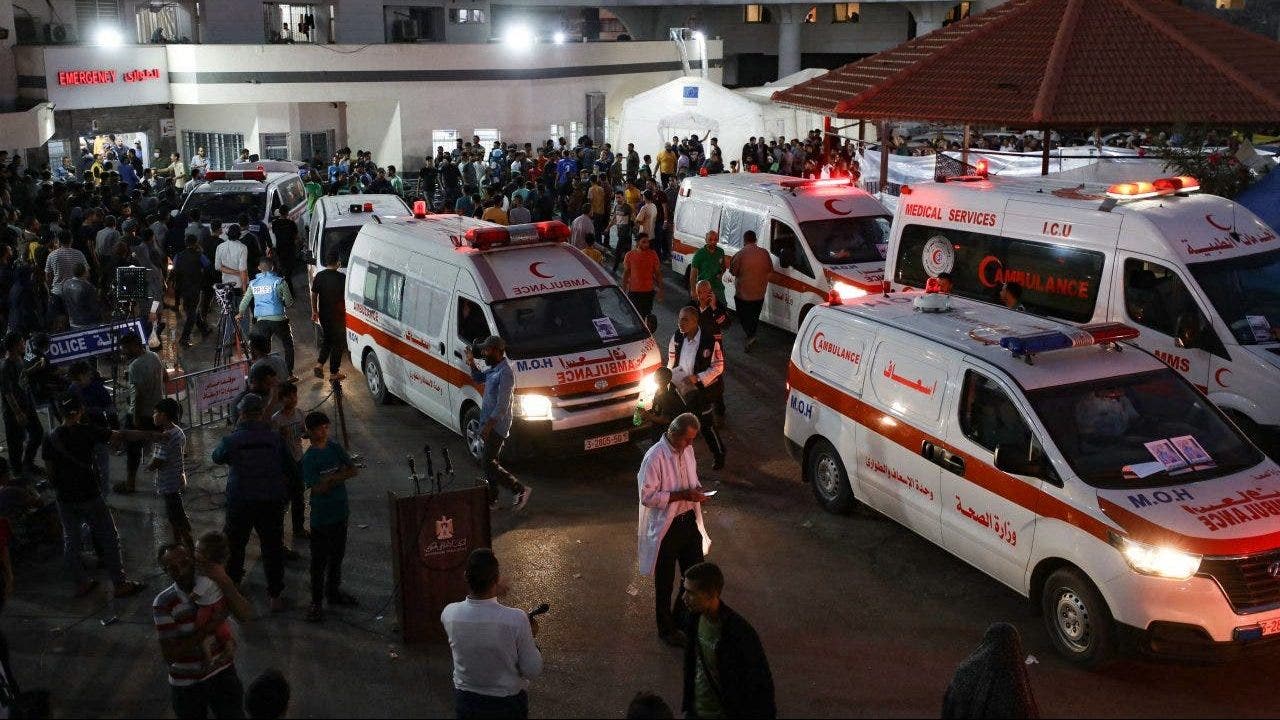
A new report cites a laundry list of alleged errors in the casualty tallies that the Hamas-run Gaza Ministry of Health has issued during the conflict in Gaza, and found that worldwide media widely report the inflated numbers with little or no scrutiny.
The Henry Jackson Society (HJS), a U.K. based think tank, found “widespread inaccuracies and distortion in the data collection process” for the Hamas-run Gaza Ministry of Health (MoH) which has resulted in a “misleading picture of the conflict.” The study also analyzed how journalists worldwide have spread misleading MoH data without noting its shortcomings or offering alternative information from Israeli sources.
The report’s author, Andrew Fox, a fellow at HJS said his team’s research is based on lists of casualty figures that the MoH has released through Telegram as well as lists released by the U.N. Office for the Coordination of Humanitarian Affairs. Fox said he and his team have been able to examine segments of the reporting, despite changeable MoH data being “really hard to interrogate.”
On Tuesday, Gaza health authorities updated its number of dead to what it said was more than 45,000.
ISRAEL TO CLOSE EMBASSY IN IRELAND OVER ‘ANTI-ISRAEL POLICIES’
A man walks past shelter tents erected near collapsed buildings in the Bureij camp for Palestinian refugees in the central Gaza Strip on Oct. 1, 2024. (Eyad Baba/AFP via Getty Images)
The report said the ministry’s reporting long indicated that women and children made up more than half of the war dead, leading to accusations that Israel intentionally kills civilians in Gaza.
“If Israel was killing indiscriminately, you would expect deaths to roughly match the demographic proportions pre-war,” Fox said. At the time, adult men made up around 26% of the Gazan population. “The number of adult males that have died is vastly in excess of 26%,” he said.
Within accessible reporting, Fox and his team also found instances of casualty entries being recorded improperly, “artificially increas[ing] the numbers of women and children who are reported as killed.” This has included people with male names being listed as females, and grown adults being recorded as young children.
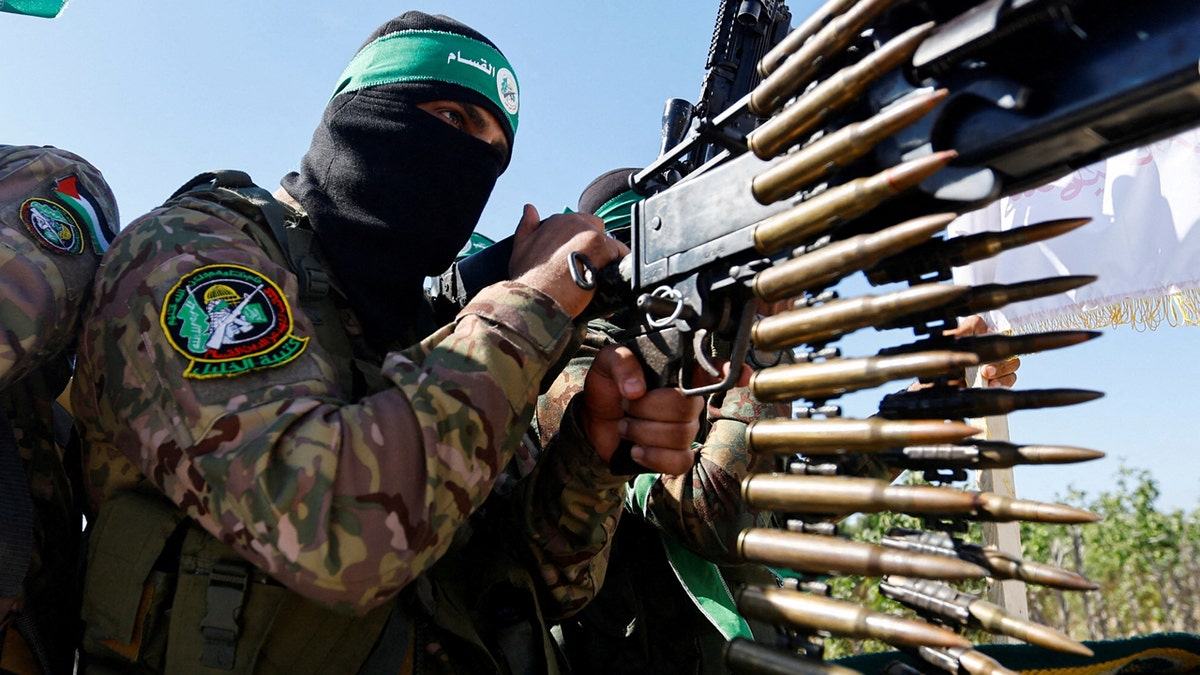
A terrorist from Hamas takes part in a military parade. (Reuters/Ibraheem Abu Mustafa/File Photo)
Analyzing data by category has further highlighted biases within reporting. There are three kinds of entries within MoH’s casualty figures: entries collected by hospitals prior to the breakdown of networks in November 2023, entries submitted by family members of the deceased, and entries collected through “media sources,” whose veracity researchers like Dr. David Adesnik, vice president of research at the Foundation for Defense of Democracies, has previously questioned.
Analysis of gender breakdowns among these groupings shows that hospital records “are distorted,” with a higher percentage of women and children among hospital-reported casualties than in those reported by family members.
UN ACCUSED OF DOWNPLAYING HAMAS TERRORISTS’ USE OF GAZA HOSPITALS AS NEW REPORT IGNORES IMPORTANT DETAILS
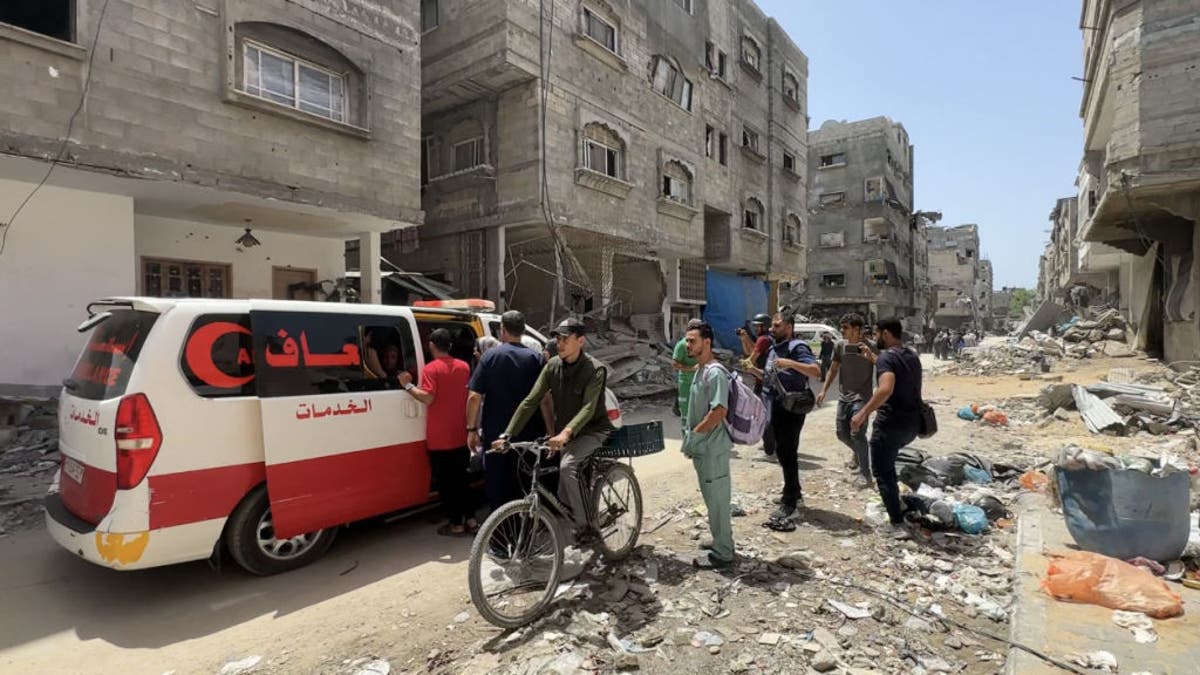
Kamal Adwan hospital’s health team evacuate Palestinian patients after Israeli airstrikes damaged the hospital in Gaza Strip on May 21, 2024. (Karam Hassan/Anadolu via Getty Images)
Though around 5,000 natural deaths typically occur in Gaza each year, the study found that MoH casualty figures do not account for natural deaths. It claims that it also fails to exclude deaths unassociated with Israeli military action from its count. This includes individuals believed to have been killed by Hamas, like 13-year-old Ahmed Shaddad Halmy Brikeh, who appears on a casualty list from August despite reports indicating he had “been shot dead by Hamas” while trying to get food from an aid shipment in December 2023. The list also excludes individuals killed by Hamas’ rockets, about 1,750 of which “fell short within the Gaza strip” between October 2023 and July 2024.
Fox and his team also found individuals who died before the conflict began had been added to MoH casualty counts. In addition, at least three cancer patients whose names were included in lists to leave the Gaza Strip for treatment in April had been listed as dead during the month of March.
RETURN OF TRUMP GIVES FAMILIES OF GAZA HOSTAGES NEW HOPE
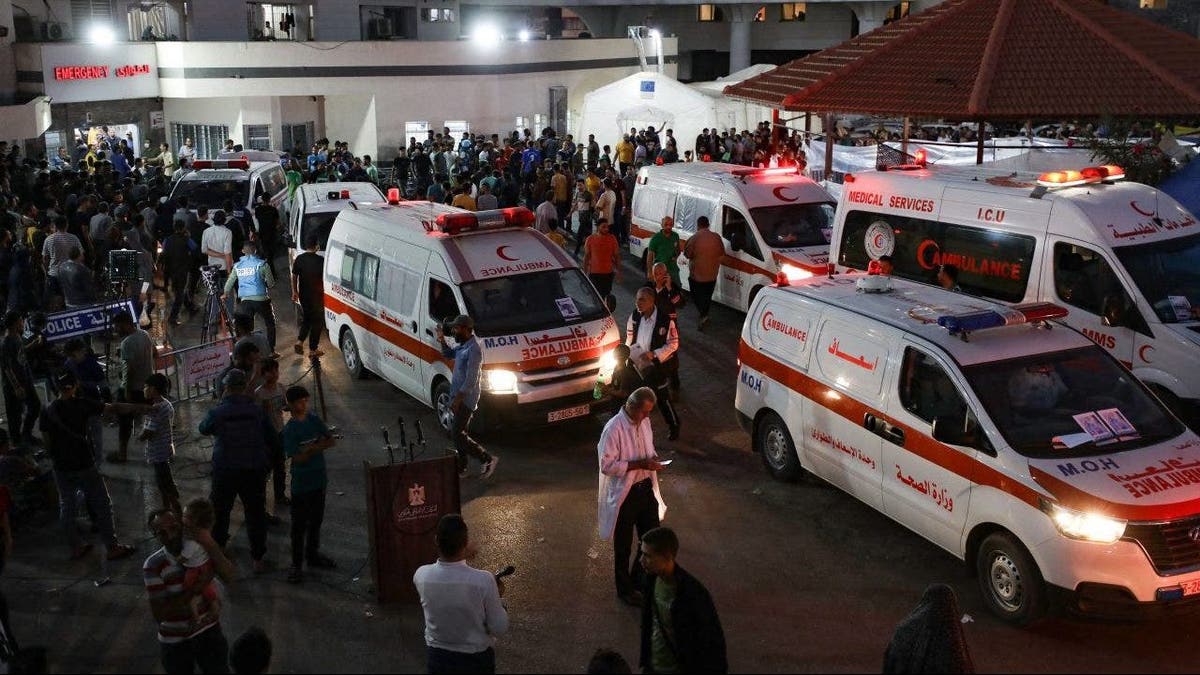
Ambulances carrying victims of Israeli strikes crowd the entrance to the emergency ward of the Al-Shifa hospital in Gaza City on Oct. 15, 2023. (Dawood Nemer/AFP via Getty Images)
The ministry does not separate combatants and civilians in its casualty figures. Though the study states that Israeli forces have killed around 17,000 Hamas terrorists, Fox said that his research indicated the death toll may include as many as 22,000 members of Hamas. He said his research supports the fact that around 15,000 of the dead in Gaza are women and children, and 7,500 are non-combatant adult males.
“Collecting these sorts of lists in a war zone is a hugely challenging thing,” Fox admitted, but he stated that the MoH’s mistakes, whether innocent or deliberate, show that the institution is “really unreliable.”
Despite this unreliability, the Henry Jackson Society’s survey of reporting of the conflict found that 98% of media organizations it looked at utilized fatality data from MoH versus 5% who cited Israeli figures. Fox found that “fewer than one in every 50 articles [about the conflict] mentioned that the figures provided by the MoH were unverifiable or controversial,” though “Israeli statistics had their credibility questioned in half of the few articles that incorporated them.”
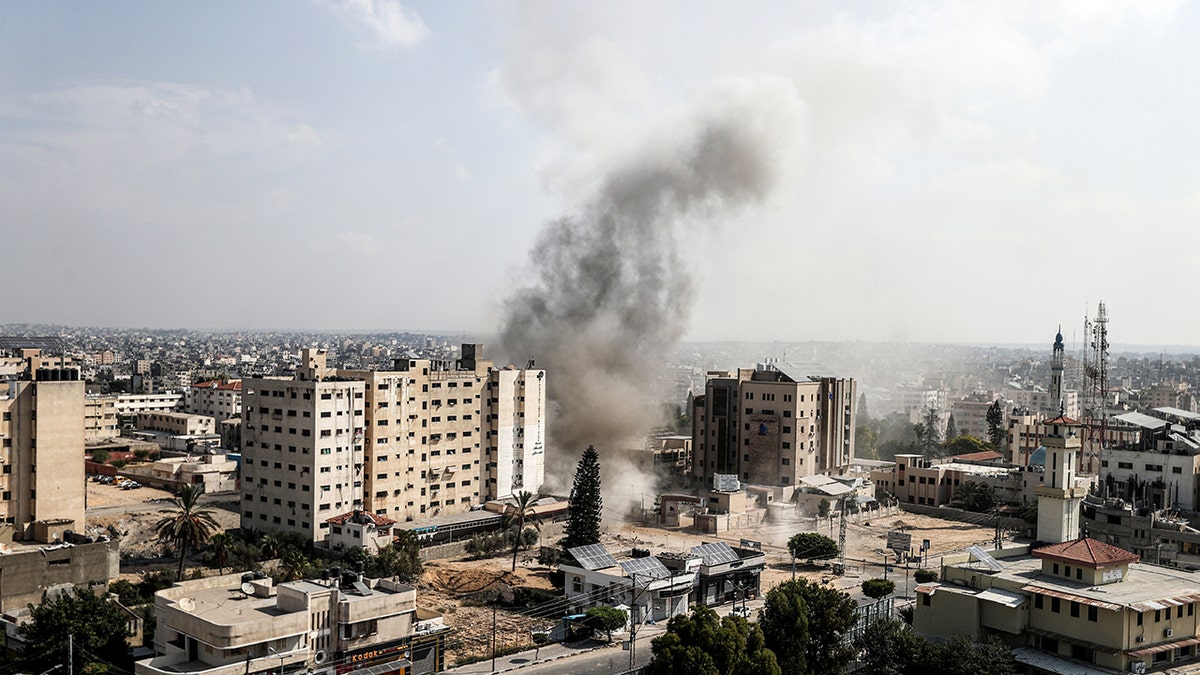
Smoke rises near the al-Wafa hospital from Israeli airstrike in Gaza City on Oct. 24, 2023. (Ali Jadallah/Anadolu via Getty Images)
As an illustration of the phenomenon witnessed in the survey, Fox pointed out what he called an “incredibly biased” article from a British broadcaster that recently emerged citing MoH data claiming that there have been more than 45,000 deaths in Gaza. Though its report mentions MoH data, it does not break down the numbers of combatants and civilians, and does not mention the questionable veracity of MoH reporting. Instead, it parrots MoH claims, reporting that women and children make up for over half of the fatalities.
“It’s just a great example of everything we’ve written in the report,” Fox said.
-

 Business1 week ago
Business1 week agoOpenAI's controversial Sora is finally launching today. Will it truly disrupt Hollywood?
-

 Politics6 days ago
Politics6 days agoCanadian premier threatens to cut off energy imports to US if Trump imposes tariff on country
-
/cdn.vox-cdn.com/uploads/chorus_asset/file/25782636/247422_ChatGPT_anniversary_CVirginia.jpg)
/cdn.vox-cdn.com/uploads/chorus_asset/file/25782636/247422_ChatGPT_anniversary_CVirginia.jpg) Technology7 days ago
Technology7 days agoInside the launch — and future — of ChatGPT
-
/cdn.vox-cdn.com/uploads/chorus_asset/file/25789444/1258459915.jpg)
/cdn.vox-cdn.com/uploads/chorus_asset/file/25789444/1258459915.jpg) Technology5 days ago
Technology5 days agoOpenAI cofounder Ilya Sutskever says the way AI is built is about to change
-

 Politics5 days ago
Politics5 days agoU.S. Supreme Court will decide if oil industry may sue to block California's zero-emissions goal
-
/cdn.vox-cdn.com/uploads/chorus_asset/file/25546252/STK169_Mark_Zuckerburg_CVIRGINIA_D.jpg)
/cdn.vox-cdn.com/uploads/chorus_asset/file/25546252/STK169_Mark_Zuckerburg_CVIRGINIA_D.jpg) Technology5 days ago
Technology5 days agoMeta asks the US government to block OpenAI’s switch to a for-profit
-

 Politics7 days ago
Politics7 days agoConservative group debuts major ad buy in key senators' states as 'soft appeal' for Hegseth, Gabbard, Patel
-

 Business4 days ago
Business4 days agoFreddie Freeman's World Series walk-off grand slam baseball sells at auction for $1.56 million

















